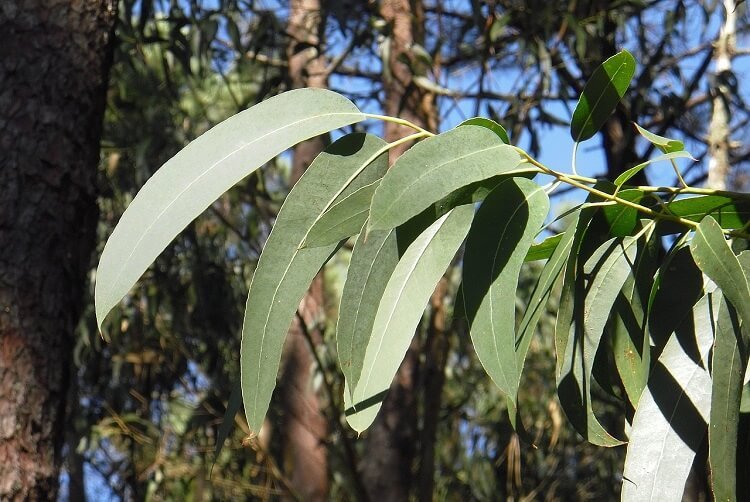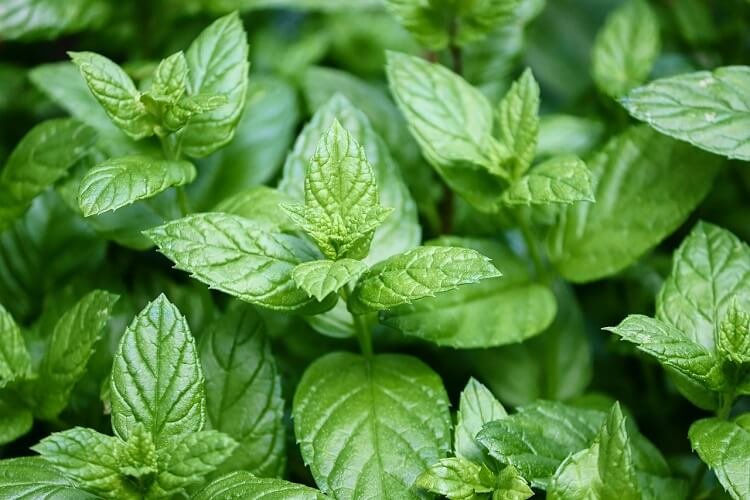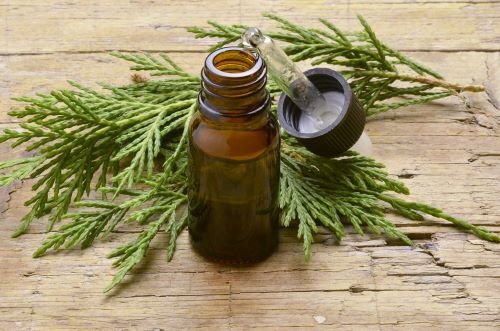7 Best Essential Oils for Bloody Nose: Stop and Prevent Nose Bleeding

Are you tired of dealing with frequent bloody noses and wondering if there’s a natural remedy that could help? You’re not alone. Many people struggle with this issue, especially during dry or cold weather, and it can be both uncomfortable and alarming.
Fortunately, there are certain essential oils that have properties that can help manage bleeding noses.
That’s why I’ve researched and compiled a list of the 7 best essential oils that can help manage and even prevent bloody noses.
In this article, I will explore these essential oils in detail, discussing their properties, benefits, and how to use them effectively.
By the end of this article, you’ll have a better understanding of how essential oils can be a natural and effective solution for managing bloody noses.
Best Essential Oils for Bloody Noses
Selecting effective essential oils can be helpful for managing minor nosebleeds at home. These natural remedies may support the integrity of blood vessels and assist in the soothing of mucous membranes.
1. Lavender Oil

Lavender oil has soothing and calming properties that can help reduce stress and anxiety, which may contribute to nosebleeds.
So if you notice that the nosebleed occurs when you are under stress or anxious, just keep some diluted lavender oil with you, add it on a napkin and put in on your face and around your nose. This will help you relax.
Lavender oil promotes blood clotting, which may help stop the bleeding from a nosebleed. To use it apply a small amount to a cotton ball or swab. Gently insert the cotton ball or swab into the bleeding nostril and apply light pressure for a few minutes .
2. Eucalyptus Oil

Eucalyptus oil is known for its anti-inflammatory and antiseptic properties, which may help with nosebleeds by reducing inflammation and preventing infection .
It can also act as a natural decongestant, helping to clear the nasal passages and potentially reducing the risk of nosebleeds
GOOD TO KNOW: Natural decongestants work by reducing inflammation, thinning mucus, and promoting easier breathing. They are often used to alleviate symptoms of common cold, allergies, sinusitis, and other respiratory conditions.
3. Peppermint Oil

Peppermint oil has cooling and soothing properties that may help alleviate nasal irritation and reduce the frequency of nosebleeds .
It also helps by acting as a hemostatic agent, reducing bleeding and promoting clotting. For example, it is often used in oral care lotions and nursing agents to prevent gingival bleeding caused by friction during teeth brushing. [1] [2]
Peppermint oil is also used in aerosol products for oral/nasal administration, where it can provide analgesic effects and help with respiratory conditions. [3]
4. Lemon Oil

Lemon essential oil helps with nosebleeds by calming down the irritation and swelling in your nose. The oil has special components that act like shields to protect and heal the tiny blood vessels inside your nose. [4]
There’s also a special spray with lemon, Aloe juice, and other oils that can fight off some things that make your nose feel stuffy. These things are called eosinophils granulocytes and mast cells, and they can be linked to nose problems. [4]
Lemon oil is good at fighting off germs, too! It can help prevent infections in your nose caused by germs like Staphylococcus aureus and Staphylococcus haemolyticus. [5]
When lemon oil teams up with other oils like Thyme, Marjoram, and Lavender, they become a super team that helps your body make more red blood cells.
5. Cypress Oil

Cypress oil has been found to have properties that can help with nosebleeds. It has been used in the preparation of bleeding-stopping liquids and pastes, which have been shown to effectively stop bleeding and promote wound healing. [6]
I also found this testimonial from a woman who went into an annual essential oils convention where she learned about the potential benefits of Cypress oil in stopping nosebleeds.
According to the testimonial, when her son experienced a nosebleed, she applied several drops of Cypress onto a cotton ball and rubbed it on both of her son’s forearms, targeting the major blood arteries for quicker absorption.
To her surprise, after just two more applications within the first minute, the nosebleed came to a complete halt. This firsthand account serves as a compelling testimonial to the effectiveness of Cypress oil in managing nosebleeds.
6. Helichrysum Oil

Helichrysum oil has been found to have anti-inflammatory properties [7].
It promotes collagen synthesis and fibroblast growth, which can help with wound healing and tissue repair. [8]
Additionally, Helichrysum oil has been shown to have antimicrobial activity against various bacteria and yeasts – which might be causing allergies thus a bloody nose. [9] [10].
7. Geranium Oil

Geranium oil has been traditionally used for nosebleeds. [11]
It contains active compounds such as tannins, flavonoids, phenolic acids, essential oil, and vitamins (A, C). [12]
The essential oil of Geranium robertianum has been found to have antibleeding properties. [13]
Additionally, a study on Pelargonium zonale leaves, which belong to the Geranium family, showed that the bleeding time was significantly shorter in the group treated with geranium leaf juice and crushed leaves compared to the control group. [13]
The hemostatic effect of geranium leaf juice was found to be similar to that of a commercial hemostatic sponge. [14]
These findings suggest that geranium oil and its components may help in reducing bleeding and promoting hemostasis, making it a potential the best natural remedy for nosebleeds.
Other Essential Oils That Have Been Anecdotally Reported to Be Helpful for Bloody Noses
Many people turn to essential oils for a variety of health concerns, including nosebleeds. While scientific studies on the effectiveness of essential oils for nosebleeds are limited, several have been anecdotally reported to help manage the condition.
- Tea Tree Oil: Tea tree oil has antiseptic properties that can help prevent infection and promote healing in the nasal tissues. [15]
In addition to pure essential oils, certain oil blends and carriers may also be mentioned in anecdotal advice:
- Virgin Coconut Oil: With moisturizing qualities, it’s thought to lubricate the nasal passages.
- Vitamin E Oil: Due to its properties, it’s sometimes recommended to promote healing in the nasal tissue.
- Nosebleed Compress: A cool compress with a few drops of essential oils might comfort and calm a nosebleed.
It is important to remember that the use of essential oils, especially internally or in sensitive areas like the nose, should be approached with caution.
Bloody Noses and Their Common Causes
A bloody nose, or epistaxis, occurs when the blood vessels in the lining of your nose break. This condition is common and often not a cause for serious concern. Several factors can lead to a nosebleed, ranging from physical trauma to environmental conditions.
Here’s a short from Dr. Mike Hansen on YouTube that explains why a nosebleed for no reason might occur.
Here’s a table where I summarize all the possible reasons for a bloody nose.
| Cause | Description |
|---|---|
| Trauma | Injury to the nose, whether from a fall, sports, or a minor bump, can damage the delicate blood vessels in the nasal passages. |
| Hypertension | High blood pressure may contribute to the spontaneity and frequency of nosebleeds. While not the direct cause, it can exacerbate bleeding once it starts. |
| Deviated Septum | An uneven septum can disrupt airflow, causing dryness in specific areas and increasing the risk of nosebleeds. |
| Nasal Polyps | Noncancerous growths that can irritate the nasal lining, potentially leading to bleeding. |
| Sinusitis | Inflammation within the sinuses can spread to the nasal passages, making them more vulnerable to bleeding. |
| Allergies | Allergic reactions can cause inflammation and irritation of the nasal lining, resulting in nosebleeds. |
| Dry Air | In dry or heated environments, the nasal passages can become dry and irritated, increasing the likelihood of bleeding. |
| Picking Nose | Habitual nose-picking can cause scratches or irritations, leading to nosebleeds. |
| Foreign Object | Inserting objects into the nose increases the risk of injury to the nasal lining and nosebleeds. |
| Infection | Respiratory infections, like colds, can cause nasal tissues to swell and bleed. |
| Vitamin K Deficiency | Vitamin K is crucial for blood clotting; a deficiency might make it harder to stop nosebleeds. |
⚠️ IMPORTANT: If you frequently experience nosebleeds, consult with a healthcare provider to determine the real cause of nosebleed and appropriate treatment. It’s especially important to see a doctor if your nosebleeds are accompanied by symptoms like frequent headaches, fatigue, or bruising.
How To Use Essential Oils To Treat Bloody Noses
Here’s a simple step-by-step guide to use essential oils for nosebleed.
- Choose a suitable essential oil known for its hemostatic (blood-stopping) properties, such as cypress, geranium, or lavender.
- Dilute the essential oil with a carrier oil, such as coconut oil or jojoba oil, to a safe concentration (1-2 drops of essential oil per teaspoon of carrier oil).
- Apply a small amount of the diluted essential oil mixture to a cotton ball or swab.
- Gently insert the cotton ball or swab into the bleeding nostril and apply light pressure for a few minutes.
Remember to avoid internal use, as the mucous membrane inside your nose is sensitive.
⚠️ IMPORTANT: Essential oils are potent. You should always dilute them with a carrier oil (like coconut or jojoba oil) before applying them to the skin. Also, avoid putting them inside your nostrils.
Precautions and Safety Considerations
When considering essential oils for managing bloody noses, it’s important to approach with caution. Essential oils are potent and can sometimes cause adverse reactions.
Allergy Testing:
- Before using any essential oil, perform a patch test to rule out allergic reactions. You can buy patch tests from almost any pharmacy including online marketplaces like Amazon. For example this one called PatchMD – Allergy Plus Topical Patch, 30 Day Supply, sold on Amazon and costs less than $20.
- Apply a small diluted amount of the essential oil to the skin and wait for at least 24 hours to see if there is a reaction.
During Dry Weather:
- Dry weather can contribute to nasal dryness and subsequent nosebleeds.
- Be aware of the local weather forecasts; use essential oils with humidification methods if the weather is expected to be particularly dry.
- Use a humidifier in conjunction with essential oils to keep your nasal passages moist.
Using Essential Oils Safely:
- Only use therapeutic-grade essential oils. Here’s an article where I explain How To Tell If Essential Oils Are Pure and How to Make Essential Oils At Home.
- Avoid direct application inside the nostrils. Instead, use a diffuser or inhale the scent from a cotton ball or tissue placed nearby.
Bottom Line
So, there you have it. 5 essential oils that can stop and prevent nose bleeding. These essential oils are natural and safe to be used on you or your kids. Just keep in mind to always dilute them before using.
By the way, if there any questions that I haven’t answered in this post, feel free to add them in the comments section below. Just leave your comment below and I’ll try to find the answer for you. I’ll even email you the answer, if you want.
So, which one are you planning on using first?
More Articles on Essential Oils
